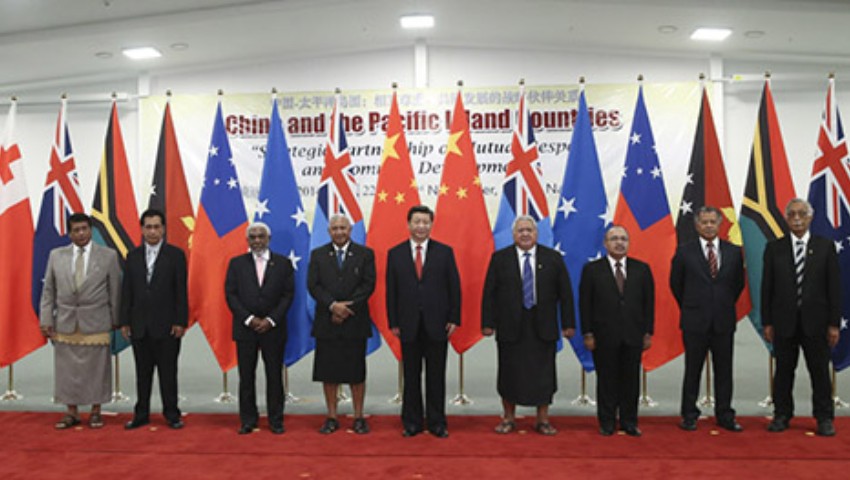Beijing is looking to strike “traditional and non-traditional security” deals with 10 Pacific Island nations, according to a newly leaked draft document.
China has shared a draft communique and an accompanying five-year action plan with 10 Pacific islands nations, aimed at strengthening bilateral and multilateral ties through greater security collaboration.
The “China-Pacific Island Countries Common Development Vision” draft document, which was leaked to Reuters, proposes intermediate and high-level police training for Pacific Island countries, while the action plan calls for ministerial dialogue on law enforcement capacity and police cooperation.
This includes the provision of forensic laboratories, cooperation on data networks, cyber security, and smart customs systems.
China’s Pacific plan also advocates for a “balanced approach” on technological progress, economic development and national security.
Accordingly, the draft communique backs a China-Pacific Islands Free Trade Area, and joint action on climate change and health.
Beijing’s plan – leaked ahead of a diplomatic tour of the region by Foreign Minister Wang Yi – has already been met with fierce criticism from at least one Pacific leader.
President of the Federated States of Micronesia (FSM), David Panuelo, has issued a letter to 21 of his regional counterparts, condemning the “pre-determined joint communique”, which he fears could spark a new “Cold War”.
He warned the deal would draw Pacific Islands nations “very close into Beijing's orbit, intrinsically tying the whole of our economies and societies to them”.
The proposed deal, President Panuelo added, could embroil the region in a conflict in the event of a clash between China and Taiwan.
The President went on to express concern over the “practical impacts” of the deal on sovereignty, including the potential for Chinese control over regional communications infrastructure, and maritime territory and resources.
China’s provision of customs systems also risks “biodata collection and mass surveillance of those residing in, entering and leaving” Pacific Islands territory.
Notably, President Panuelo said the proposal “increases the chances of China getting into conflict with Australia, Japan, the United States and New Zealand”.
The White House has also issued a statement in response to reported proposals, with US State Department spokesperson Ned Price warning against agreements “negotiated in a rushed, non-transparent process”.
“We don’t believe that importing security forces from the PRC and their methods will help any Pacific Island country,” he said.
“Doing so can only seek to fuel regional and international tension and increase concerns over Beijing’s expansion of its internal apparatus to the Pacific.”
Chinese Foreign Ministry Spokesperson Wang Wenbin has rejected claims China’s Pacific strategy would exacerbate tensions.
“I do not agree at all with the argument that cooperation between China and the South Pacific island countries will trigger a new Cold War,” he said.
“…China is ready to work with the PICs in taking this visit as an opportunity, further strengthen high-level exchange, consolidate political mutual trust, expand practical cooperation, and deepen people-to-people bond so as to build an even closer community with a shared future for China and Pacific Island countries.”
Chinese Foreign Minister Wang Yi is expected to visit eight Pacific Islands nations from 26 May to 4 June, starting with Fiji.
New Australian Foreign Minister Penny Wong has arranged a meeting with counterparts in Fiji to coincide with China’s visit.
These latest revelations come just weeks after China struck a security agreement with the Solomon Islands.
The agreement took centrestage during the Australian federal election campaign, with newly elected prime minister, Anthony Albanese, recently committing to bolster foreign aid and cooperation with the region to curb Beijing’s expansion plans.
This includes a more than half a billion dollar increase in financial assistance to the Pacific.
[Related: New PM pledges ‘more energy and resources’ for Pacific security]








